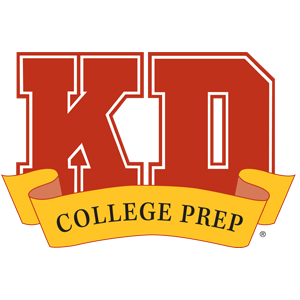Whether you’re applying to two colleges or twelve, you need to prioritize balance.
We’ll tell you how to create a balanced college list that is likely to result in mostly acceptances. We also have some nontraditional advice about how to think about the college list, and it doesn’t include statistics.
With a balanced college list, you won’t put all your eggs in one basket. Instead, you’ll find several great college options and end up with a decision with which you’re satisfied.
6 Steps to a Balanced College List
How many colleges should I apply to?
We recommend using the 3-3-3 Rule to create a successful college list. Your list should have about three reach colleges, three match colleges, and three likely colleges.
Choosing Three Reach Colleges
A reach college is one that you’d like to attend but may not get accepted into due to high competition or because your academic or personal profile is below what is typically accepted. Ivy League colleges are always reaches.
For example, Harvard only accepted 4.5% of its 43,330 applicants for the Class of 2023. Apply to Harvard if your academic profile matches what it looks for, but understand that even with a perfect college application you could still receive a rejection letter.
Choosing Three Match Colleges
Match colleges include schools that are a perfect fit for you but still have a relatively competitive college admissions process. This may include relatively high ranking state universities, private colleges, or a school with a highly competitive degree program.
These are schools for which you meet the academic requirements. This means you have a decent chance of getting in, but you’re not 100% sure that you will.
Choosing Three Likely Colleges
Likely colleges are the schools that will assuredly accept you. You’re well above the requirements for acceptance. You need to be happy attending each of these colleges.
One of the benefits of applying for a school for which you’re an exceptional applicant is that you may receive a large amount of scholarship money or financial aid to help pay for school.
If you follow this plan, you’ll end up with a good number of college acceptance letters. This will give you enough information and confidence to help you make your final choice.
How do I know if a college is right for me?
Friends, this one’s really, really important.
College is where you’ll spend the next four and, arguably, most formative years of your life. You will live away from family for the first time and make lifelong friends, all while studying cutting-edge information in your field.
If you can’t see yourself living there, going to class, meeting like-minded people, and flourishing in the next major stage of your life, then…don’t go there.
College choice isn’t all about what’s most advantageous for your future (although that’s certainly part of it). There’s a pretty big part of creating a balanced college list that’s about your happiness.
Honestly, just spend some time picturing your freshman year on campus. Through this exercise, you’ll quickly learn what you like and dislike about each of the colleges you’re considering.
For step by step directions on how to visualize your college experience, check out “Developing a College Wish List.”
What should be most important when considering colleges?
Not all colleges are created equal.
Some emphasize liberal arts, small class sizes, and professors who put their cell phone numbers on their syllabi.
Others emphasize state-of-the-art computer labs, an intramural program that’ll wow you, and luxury dorms.
Still others emphasize rigorous scholastics, a tight-knit school culture, and deep community involvement.
Some colleges have a mixture of characteristics within specific degree programs. Find a college atmosphere that fits your learning style and your social preferences. There’s no right answer.
Be sure to seek out a variety of college atmospheres that nevertheless all conform to your most fundamental priorities.
Does the college offer majors or programs that interest me?
If you’ve decided which college major you want to dive into, be sure to take a closer look at the degree program for that major.
Does the college offer a promising program for your major?
If you’ve chosen a college major, make sure the school you’re going to has a promising program for pursuing that major. It’s easy to find out online how programs rank nationally, but you’ll also need to ask about job and graduate school placement for recent graduates, program requirements, program resources, and even program stability.
Some questions you should ask:
- What courses will you take?
- Who teaches them?
- How many professors are in the department?
- How many students are in the major?
- Are there many class options?
- Do the class titles excite you?
- What books or technology are required?
- What community exists among people of that major?
- Is the major diverse?
- What extracurriculars are those majors usually involved in?
- Do graduates have a high rate of success?
Try to talk to a senior in your major during a college visit. He or she may know better than any college admissions official what it’s like to major in that degree program at the college. Find out what he or she would have wanted to know as an incoming freshman. Remember to take notes.
Is it hands on?
Does your degree program offer hands-on, real world experience that would become useful when applying for jobs or graduate programs later on? Does the college offer part-time employment options or internships offered related to your career? These types of opportunities may help you stand out when applying for jobs after college.
What other degrees does the college offer?
While you might think you have a pretty good idea of what you’ll major in right now, keep in mind that it may change. The U.S. Department of Education reports that about one-third of undergraduates change their major at least once. If you decide to change paths later on, it’s probably a good idea to choose a school that offers your second or third choice in college majors or provides a wide range of other degree programs.
What opportunities will I have?
This step dovetails with the previous one. When you’re doing your assessment of the colleges’ degree programs, check out the professors and extracurricular options too.
Professors
Take a look at the highest-level classes in your major. Who teaches them?
Those are the professors with the most seniority whose attitudes and opinions influence the whole department. If there is only one professor for the department, what would happen if he or she left?
Extracurriculars
Think about this in terms of building a network. What does the college offer that will further your education and career? Would you meet people with similar interests?
If there are department-specific extracurriculars, examine those in particular.
What college factors are less important?
This one’s hard, and we know it.
Don’t make your college choice based on where your friends are going. Real friends will make keeping in touch a priority. You will also make new friends when you get to college.
Also, don’t make your college choice based on college rankings alone.
If a lower-ranked college is an absolutely perfect fit for your wants and needs, it’s a bad idea to choose your future solely based on the U.S. News & World Report Best Colleges list.
If you wind up at college with your best friend, that’s wonderful. If you decide that the highest-ranked college on your list is a great fit, congratulations.
What we’re saying is not to prioritize those two things above location, price, opportunity, and college atmosphere.
Remember, all in all, creating a balanced college list is about, well, not putting all your eggs in one basket.
Decide what’s a priority for you and don’t budge on it, but give yourself lots of variety in other areas so that you’ll have as many college offers as you can get.
Need help finding the right colleges for you?
A college counselor has a wealth of knowledge regarding which schools you should consider based on your academic profile. He or she will walk you through the entire college admissions process. See what our college counseling division has to offer.














































